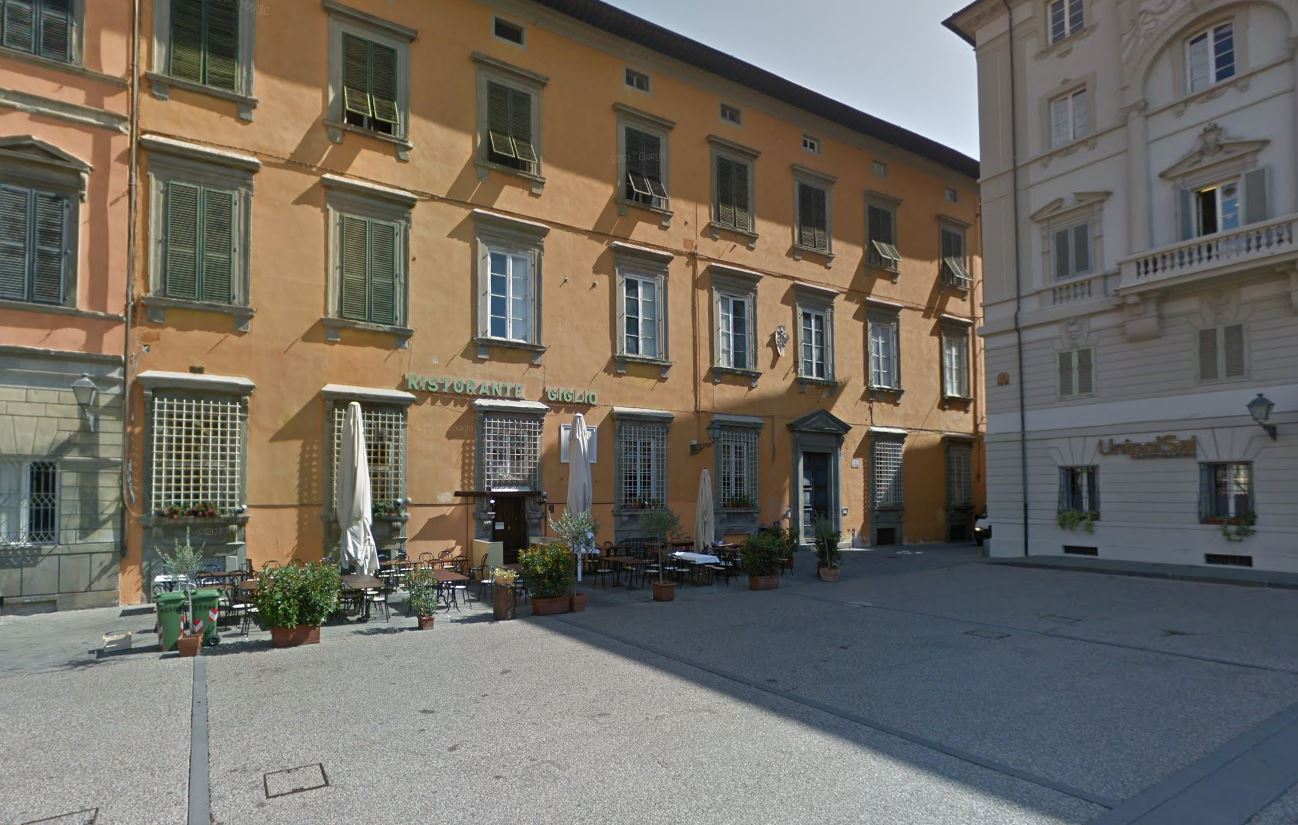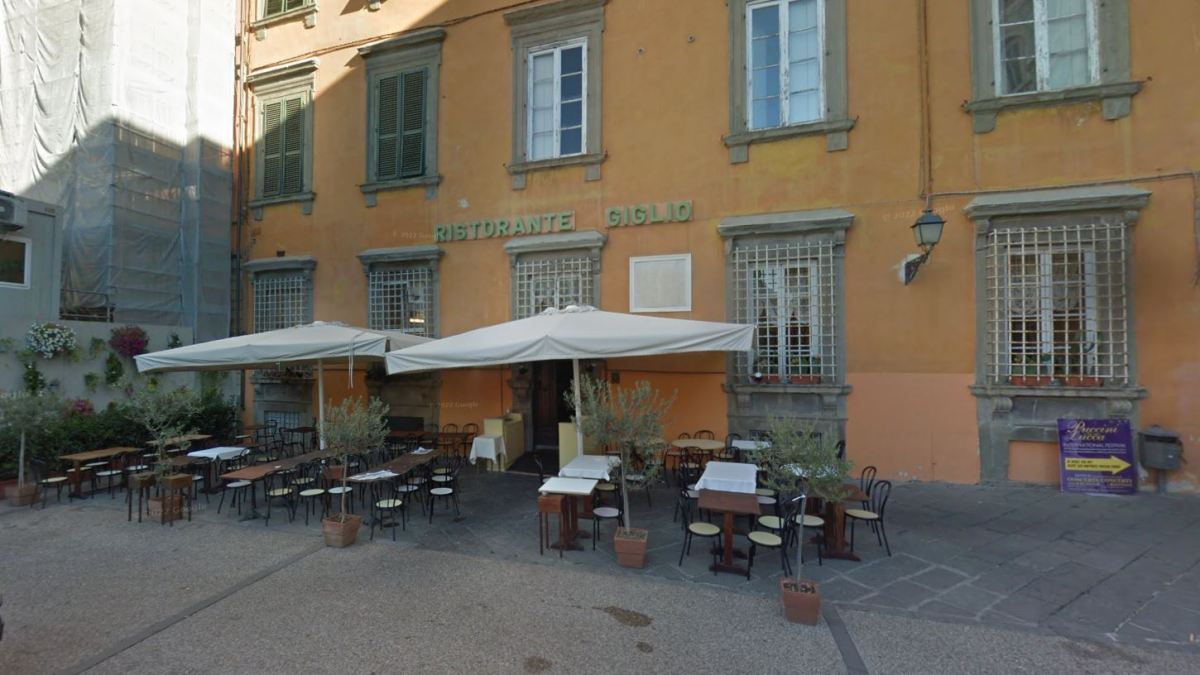Michelin stars were once the ultimate status symbol for restaurants, a coveted stamp of approval typically earned by years of hard work in the kitchen.
However, a restaurant in Tuscany has become the latest to ditch the fare in favor of a more casual dining experience, raising fears that fine dining is in decline.
The restaurant Giglio in Lucca received its first star in 2019 Michelin guide. Last week, its owners announced that they have asked to have the star removed before next year’s edition of the guide is published. “We have nothing against the Michelin system,” said Benedetto Rullo, 35, one of the owners. “We said, ‘we no longer see ourselves in a certain light’.”
Located on a square with a view Lucca’s 19th-century opera house, the restaurant seats up to 50 people in a grand hall decorated with frescoes and gilded mirrors.

The restaurant Giglio in Lucca received its first star in the 2019 Michelin guide
This month’s menu includes king prawns with pomegranate, grilled pumpkin and mascarpone cheese; mushroom, chestnut and dried apricot tart; and parmesan risotto with chianti reduction. “It’s a very casual restaurant with a menu that everyone can understand,” Rullo said. “We’re not the kind of place you come to worship star chefs.”
The Michelin star had become a burden, the owner explained, because many diners were put off by the prospect of “fussy” food and a formal atmosphere. “You should be able to go to a nice restaurant in a T-shirt, flip-flops and shorts,” Rullo said.
Created to help French drivers plan where to stop for a decent meal Michelin guide began awarding stars in 1926 and today rates restaurants on criteria including the quality of ingredients and the chef’s mastery of cooking techniques. This year’s guide includes almost 400 restaurants in Italy.
However, Rutto said maintaining the status brought “incredible” levels of stress, adding that while most customers associated the Michelin star with formality, guests’ expectations were changing as they sought a more relaxed atmosphere.
Other restaurants have evaded recognition. In 2021, chef Yoji Tokuyoshi closed his Michelin-starred Japanese restaurant in Milan and reopened it as a simple alternative. He told GQ magazine that the change had allowed him to reduce his staff from 18 to 12 and doubled his profits.
British chef Marco Pierre White, who in 1994 became the youngest chef to achieve three stars, gave up his culinary stripes five years later to spend more time with his children. Several leading chefs across Europe have since followed in his footsteps.
Last year, almost 15,200 restaurants closed in Italy, compared with 6,200 new openings in the country, according to industry body FIPE, as owners struggle to balance the books due to rising raw material costs and falling consumer demand. Italy had almost 195,500 restaurants by the end of 2023, the organization said.
Michelin-starred and gourmet restaurants in particular have faced a “deep crisis”, Il Sole 24 Ore, Italy’s leading financial daily, noted in July.
However, Igles Corelli, a chef and TV personality who has been awarded five Michelin stars during his career, said that fine dining suffers only momentarily. The Giglio restaurant in Lucca, he added, had set a bad example for eateries aspiring to the honor.
“At the moment people want simple food and a return to tradition, but in the spring there will be modern food and fusion food,” he predicted. “Fine dining is not dead, but on a little hiatus, and one day it will be back with a vengeance.”
